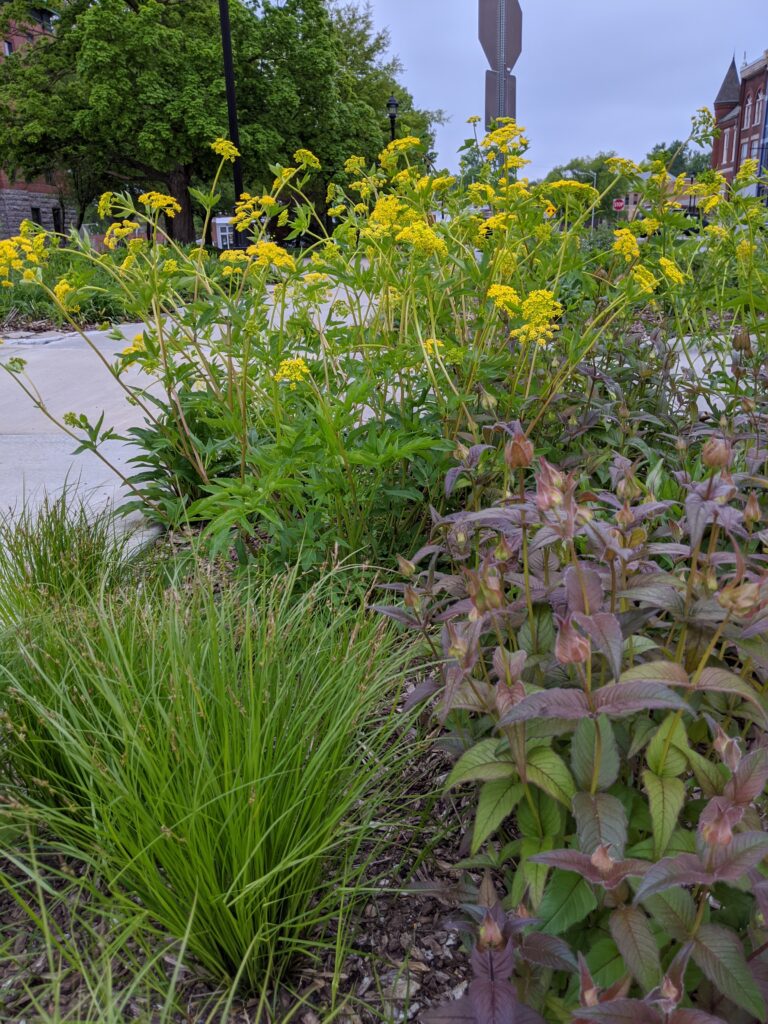
This is the first of a 4 part blog series describing 12 easy-to-grow plants for attracting pollinators (butterflies, bees, etc) to your garden. In addition, most of the species provide birds with seed in the winter–so don’t cut back plants until late spring!! The 12 species are all available for free (while supplies last!)–see December 12th blog, Create Your Own Pollinator Habitat at Home, for details.
Each Thursday through January 5th we’ll feature 3 of the 12 plants with detailed descriptions of the plants as well as specific sowing instructions. Note however, for those that say to direct sow in spring, you may actually direct sow them in late fall/winter. In nature the seeds would go through winter and just come up when they’re ready. If you’re late fall/winter sowing a bunch of plants, it’s kind of convenient to just do them all the same way!
Lanceleaf Coreopsis (Coreopsis lanceolata)
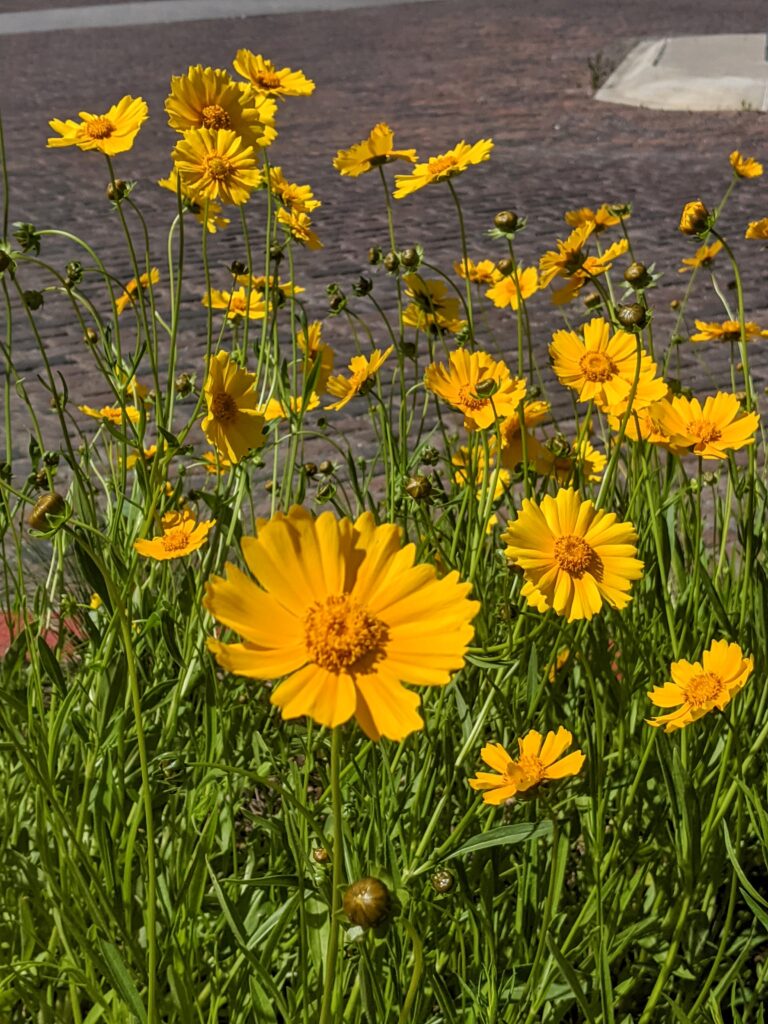 Direct sow coreopsis in spring, planting seeds 1/4″ deep and lightly compacting the soil, as it does not require stratification. Keep the soil lightly moist. Select a well-drained planting site in full sun. Tolerant of heat and drought. Sunny yellow blooms beginning in late May. Great food source for many butterflies, bees, and other pollinators and songbirds feed on seed mid-summer.
Direct sow coreopsis in spring, planting seeds 1/4″ deep and lightly compacting the soil, as it does not require stratification. Keep the soil lightly moist. Select a well-drained planting site in full sun. Tolerant of heat and drought. Sunny yellow blooms beginning in late May. Great food source for many butterflies, bees, and other pollinators and songbirds feed on seed mid-summer.
Deadheading can encourage reblooming and reduce self-seeding, if desired. It does tend to be a heavy reseeder when given bare ground, however it is not overly aggressive when planted among other garden plants. It tends to be a short-lived perennial, so some reseeding is desirable. Transplants easily if you have too many in one place! Great for perennial borders, only growing slightly over a foot tall, or in scattered in a matrix of grasses or sedges.
Purple Prairie Clover (Dalea purpurea)
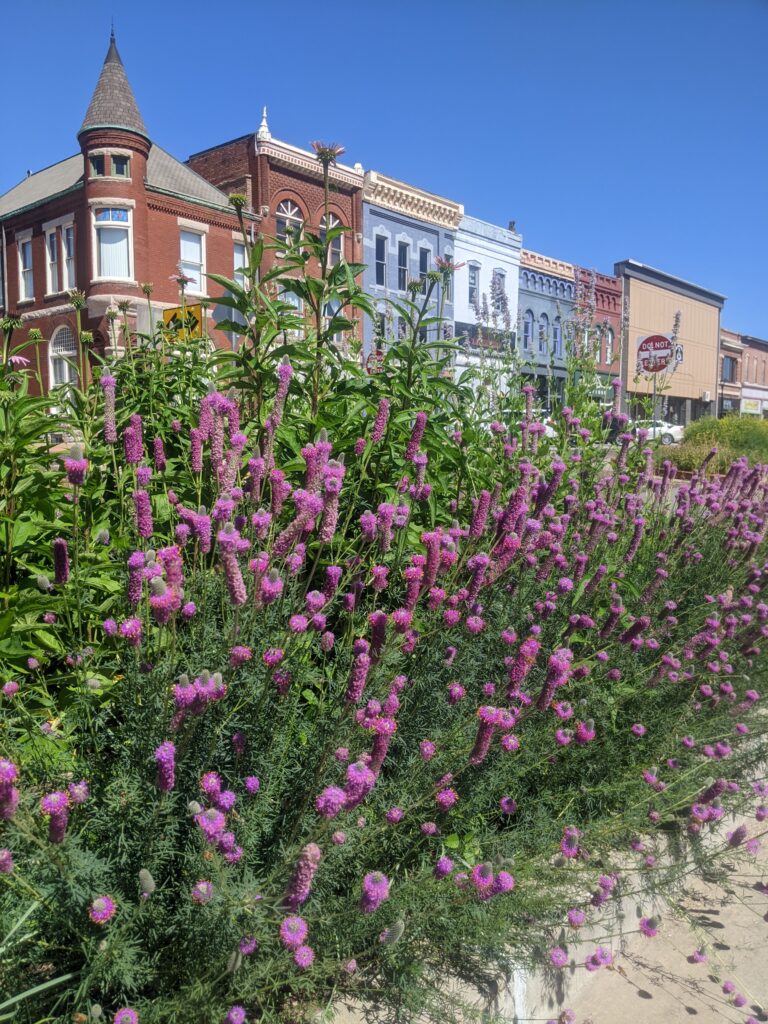 Direct sow prairie clover in spring, planting seeds 1/4″ deep and lightly compacting the soil, as it does not require stratification. Keep the soil lightly moist. Select a well-drained planting site in full sun. Rocky or sandy soil are perfect for this plant. It thrives in drought once established! Seedlings are small and delicate but will grow quickly. At maturity, reaches 2’ with attractive fine-textured foliage that looks great long after flowering, making it an excellent landscape plant. Bright fuchsia thimble-shaped flowers bloom from May to July. Great food source and larval host plant for many butterflies, bees, and other pollinators.
Direct sow prairie clover in spring, planting seeds 1/4″ deep and lightly compacting the soil, as it does not require stratification. Keep the soil lightly moist. Select a well-drained planting site in full sun. Rocky or sandy soil are perfect for this plant. It thrives in drought once established! Seedlings are small and delicate but will grow quickly. At maturity, reaches 2’ with attractive fine-textured foliage that looks great long after flowering, making it an excellent landscape plant. Bright fuchsia thimble-shaped flowers bloom from May to July. Great food source and larval host plant for many butterflies, bees, and other pollinators.
Makes a great pairing with little bluestem, butterflyweed milkweed, and lanceleaf coreopsis. This plant has become one of our favorites on the square. Be sure to look for it next spring!
Golden Alexanders (Zizia aurea)
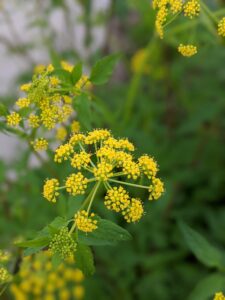
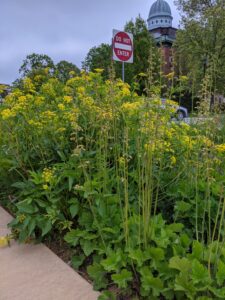 Direct sow Golden Alexanders in late fall, pressing into the surface of the soil since this plant needs light to germinate. For spring planting or starting indoors, mix the seeds with moist sand and store in the refrigerator for 30 days before planting. Keep the soil lightly moist. When transplanting outdoors, select a well-drained planting site in full to part sun. Early season bloomer with showy yellow flowers in April-June, 3’ in height. The flowers are a great food source for many butterflies, bees, and other pollinators.
Direct sow Golden Alexanders in late fall, pressing into the surface of the soil since this plant needs light to germinate. For spring planting or starting indoors, mix the seeds with moist sand and store in the refrigerator for 30 days before planting. Keep the soil lightly moist. When transplanting outdoors, select a well-drained planting site in full to part sun. Early season bloomer with showy yellow flowers in April-June, 3’ in height. The flowers are a great food source for many butterflies, bees, and other pollinators.
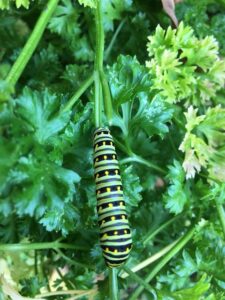
It is a heavy re-seeder, so once the blooms have finished on the square, we cut the spent blooms back, leaving behind a few seed heads to mature for collection and the attractive foliage. The foliage holds up well through the season and is a host plant for black swallowtail caterpillars. We have spotted them on the square in past years!
It looks great in the garden paired with Bradbury’s monarda, penstemon, blue wild indigo, columbine, grasses and sedges, and many other great native plants.
Don’t confuse this plant with the invasive, non-native wild parsnip that is known to cause serious skin irritation! While they are both in the carrot family and share a similar looking yellow flower, parsnip is much taller and blooms later in the summer.

One Reply to “Pollinator Plants for your Garden – Part 1”
Comments are closed.